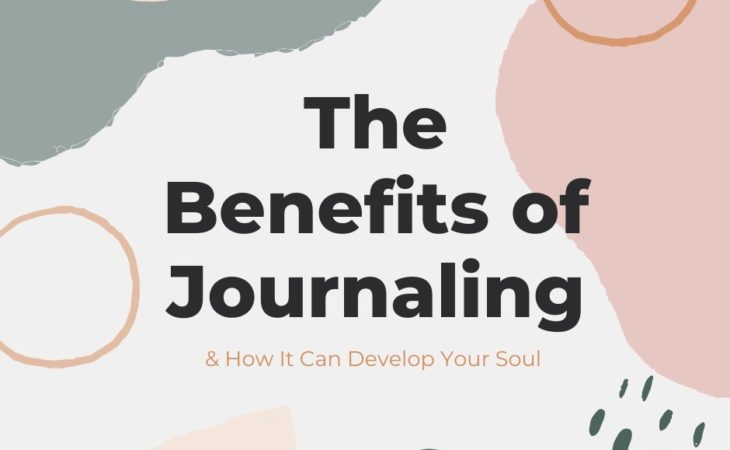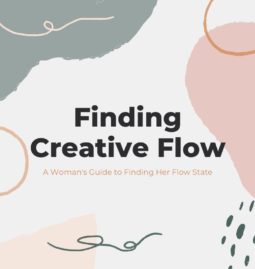The benefits of journaling can be surprising, especially to those of us that think of writing as an everyday tool for communication.
We write daily emails, text messages, and social media captions. We write to fill out forms and document transactions or processes. We write to express concepts, ideas, and information to others. You get the point.
But if writing helps you communicate with others, then what does that say about journaling?
Journaling is, essentially, the act of writing to yourself, which means journaling is a method for communicating not with others – but with yourself.
Call us crazy, but the benefits of journaling make “checking in with yourself” a pretty powerful practice.
Are you tapping into those powers to reap the benefits?
Here are 7 benefits of journaling:
- Provides a safe space
- Helps you self-explore emotions
- Builds resiliency
- Reduces anxiety
- Increases self-awareness
- Improves mindfulness
- Builds confidence
- Boosts creativity
If you’re an avid journal writer already, you’ve likely reaped the benefits of journaling in its many forms already.
And if not, it might be because you’re confusing a journal with a diary.
We’re all for keeping diaries if that’s what works for you, but to many people, there’s something about the word “diary” that connotes elementary-school vibes.
A lot of people confuse a diary with a journal, and refuse to give their journaling practice a chance because they think journaling is simply recording the day’s events.
A diary is not the same thing as a journal. A diary is usually a record of a time period’s events.
A journal is a collection of your thoughts, emotions, experiences, and reflections.
Writing in a journal should be freely expressive; if you want to write about the day, feel free to do so. If you want to write about what you’re feeling, or a particular experience, you can do that, too. It’s totally up to you. That’s the beauty of journaling.
For me, journaling is a form of therapy – it has kept me sane, and allowed me to feel “heard” when I need to share what’s on my mind in a private, inner space.
1 – Provides a safe space
A journal is a judgement-free zone. This allows journal writers to feel safe enough to communicate thoughts freely, without fear of being judged.
Can you imagine how freeing it is to have a space to let your thoughts, feelings, and emotions flow, without reserve or apprehension or feelings of insecurity?
We all need a soundboard sometimes. It’s human nature to want to communicate our thoughts.
But when we relay those thoughts and feelings to others, it’s very rare that we feel 100% safe to freely express ourselves. We filter what we say and share based on what the other person will think – whether it’s a friend, partner, coworker, or family.
As a result, we tend to bottle these thoughts inside, and it becomes uncomfortable, like trapped gas that can’t escape, but is crowding our mental space being inside. It’s harmful and self-limiting.
When you write in a journal, you’re free to express yourself in a safe space. Of course, the thought that someone can come along and read what you’ve written is a real fear. If you’re concerned about that, consider additional security measures to ensure your privacy.
Use your journal as a channel to communicate with yourself without insecurities, and release whatever you may be bottling up inside.
2 – Explores your emotion spectrum
Don’t be a Negative Nancy in your journal. Show Positive Pam’s side, too.
Too often we think that journaling should focus on the negative emotions we have. While it’s definitely okay to write when you’re feeling sad, angry, or alone, it’s important to explore your other emotions as well.
Try not to write only negative emotions and experiences.
Having the ability to explore your emotional spectrum is an important benefit of journaling because it allows you to express yourself without inhibition – not just when you feel bad, but when you feel good, too.
As you start to keep a consistent journaling practice, you can reread what you’ve written later on. This helps you reflect on and recognize your emotions, while visualizing your thought process.
Use journaling to reflect on your emotions, and you’ll learn a ton about yourself and your own mindset.
3 – Builds resiliency
One surprising benefit of journaling is its effects on resiliency. Resiliency can be described as mental and/or emotional “toughness.” It helps you cope with adversity, and lift yourself back up when you’ve been knocked down.
Through journaling, you can start to notice patterns and themes within your life. This allows you to identify, work-through, and overcome struggles and trauma within your past.
By expressing, and reflecting on difficult emotions and experiences that have challenged you in life, you’ll not only become mentally strong, but you can become more emotionally agile.
4 – Reduces anxiety and stress
Anxiety is a natural response to stress, and it usually manifests through fear and overthinking.
Our trapped thoughts and worries cycle through our minds, and if they aren’t being released in some way, they start to make us feel anxious and stressed.
A major benefit of journaling is its power to reduce anxiety and stress. Through writing for self-expression, we create positive habits in a consistent journaling practice to release the harmful thoughts that give anxiety and cause a stress response.
5 – Increases self-awareness
When you communicate with yourself, you become more self-aware. Expressive writing through a journaling practice can help you understand not only who you are, but how you impact other people.
By journaling for self-awareness, you get to know yourself a little bit more. You can explore your mindset, thought patterns, triggers, and how you view the world.
This, in turn, helps you analyze your inner workings to not only give you a deeper analysis of yourself, but helps you see how mindset affects your entire life, especially in terms of relationships and the interactions and influence you have on others, and vice versa.
6 – Encourages mindfulness
When you bring your attention to the present moment, and truly dial in to the “right now,” you’re practicing mindfulness.
Increased mindfulness is another powerful benefit of journaling. Many of us are constantly thinking about the “what ifs” or the past and future. We create an environment full of continuous mental noise due to unruly thoughts.
Journaling can encourage you to focus on feelings and sensations in the present moment, so you don’t miss out on fully experience the “now.”
If you want to start practicing mindfulness, try journaling. As you create healthy mindful habits, you’ll soon notice how much easier it is to appreciate the present and quiet your mental noise throughout daily moments.
7 – Boosts creativity
Writing in itself is a creative process, is it not? Some people don’t think so when it comes to journaling, but the very act of journaling your thoughts, emotions, and experiences, is a creative way of you telling your own story – uninhibited, and without restraint.
An effective approach to creative journaling is to steer clear from the rational mind. Push past your ego, which always wants to problem solve and make logical sense or order of things.
Once you eliminate rationality, your creative juices can flow freely from your soul.
For the benefits of journaling specifically for creative pursuits, try using creative writing prompts or other expressive freewriting to inspire your artistic flow.
Related: Strong Women Quotes
Even if you don’t consider yourself the creative type, try exploring your intuitive side with journaling; you might just discover a whole new side of yourself that’s more creative than you imagined.
Reap the benefits of journaling
So there you have it: the benefits of journaling are powerful, and can be used to transform into a better you. Not only for yourself, but for everyone around you.
And in all honestly, it just feels good. Even if you’re not a writer at heart. In fact, it’s important to set aside the expectation for “good writing” when it comes to expressive journaling.
Just go with the flow, zone out, and have a deep conversation with you.



